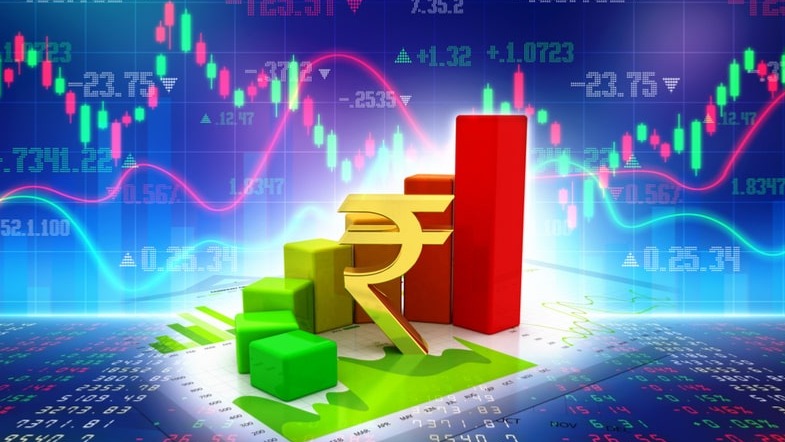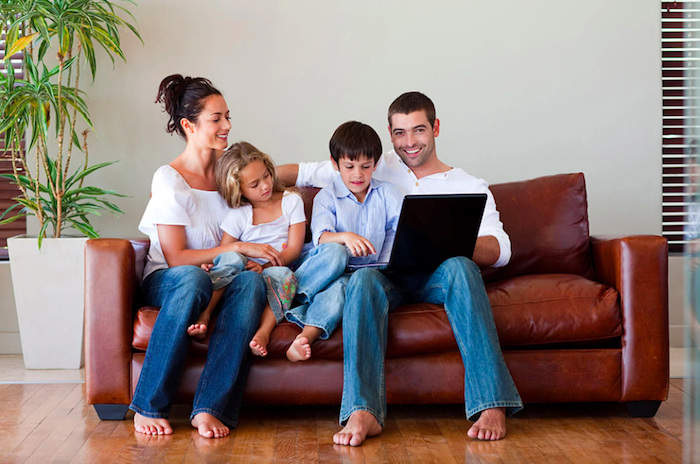Two thirds of the world population has been locked down for the past few months. The most common question most of us have is what happens next and where will we be in six months or a year from now?
There are a number of possibilities, all depending on how governments and society respond to Covid-19 i.e. Corona Virus and its health and economic aftermath. We will be in an era called the “POST COVID-19.” Life will never be the same for everyone, there will be huge shifts in our ways of life.
Hopefully we will use this crisis to rebuild, produce something better and start over again for good.This pandemic has made us realise that this world is everyone’s business and we are all so interdependent. We are not yet in recession or great depression in India and I don’t think India will head towards that direction, This is just that most part of the major world economy in paralyzed or in standby mode. We don’t know how and when we will recover. Let us now visit a few possibilities post COVID 19.
Contents
Similarities to 9/11 the world had to change:
This was the worst terror attack on mankind that we have in our living memory. It changed the way of life not just for New Yorkers and Americans but for the rest of the world. It changed the way we travelled, border security and checks were tightened, we changed the way people looked at terrorist and created religions phobia. After nineteen years it has become our way of life. Terrorists have created fear for our life, it is now time we take this pandemic serious too. We proved that a few bad men cannot remove the happiness of the world that we live in, and we moved on, but we have changed the way we live.
Though our ancestors have shown the right ways of healthy living and being responsible to our society, somewhere along the line we have changed in the name of modernization. We need to put personal hygiene, habits and our behavior in the society as our utmost priority and inculcate that to our generations to come as well Masks may be our new costume and social distancing may be a way of healthy living. Personal and family time, healthy lifestyle and boosting our immune system will be our priority. This is when the quotation of Mahatma Gandhi comes to the fullest power: We need to be the change our future generation to follow.
Public health and Economic health:

COVID-19 pandemic is first and foremost, a health crisis. However, it has rapidly become an economic crisis too. Economic decline itself has an adverse effect on health. The world has seen several economic crises but with this pandemic, the world is entering uncharted territory as we are still trying to understand our enemy. The war against infectious disease doesn’t end! Each country needs a large pool of experts to act swiftly and be able to support the region and less developed countries.
Knowledge and communication have been the most important tools for disease prevention. collaborations with international partners must improve. As diseases evolve our defence system should also improve staying one step ahead. Every government in the world uses the public health budget as its voting manifesto but seldom the common man understands that the budget for military is far more than for health. We have become better at protecting our borders from terrorist but have we from viral infections.This is war in another front all together were we are fighting an invisible enemy whose effects are far worse than the worst war we have fought.
India is facing the worst economic crisis since the independence. In the 2008 financial stock exchange crisis we recovered because businesses kept running and production kept going on. But this time we may suffer more as production will be affected due to disruption of supply chains across borders and seas. Policy makers are debating if public health is going to kill more people or if it is the economic health that will decide the recovery from this crisis. This is a classic wait and watch scenario.
Even if the lockdowns are released by the various Governments people fear the spread of the infection and their behaviour will change. Not everyone will immediately resume the activities that are allowed. Most people would have chosen not to go to work in places like restaurants, malls and public places. Jobs will be lost, businesses will close and spending will reduce. Companies cannot lose skilled workers as they may choose a different path and cannot wait for the economy to recover. A reduction in economic activity reduces the circulation of money and with it the tax revenues. This reduces the finances available for the public-health and counter measures will be needed to control the pandemic.
Healthcare system:

As the Lockdown is placing pressure on the global economy, we need a different economic mindset. Healthcare sector is not going to be spared. The healthcare functions in the future will change if not in the long term, certainly in the short term at least. Some countries have controlled the virus spread better, we are very early in the disease to answer.
Why is this case?
There are multiple factors to this such as, healthcare systems, population affected, rate of testing, adhering to lock down, living standards and overall culture of social distancing and preparedness to pandemics. When developed countries like Italy, Spain and UK were seeing a healthcare crisis prioritising who dies due to inadequate ventilators, shortage of healthcare workers, lack of PPE kits and even masks, it makes one wonder that even developed countries have got their funding and systems wrong.
Economic decline itself has an adverse effect on health. It hits individuals and families, who may see their income plummet catastrophically. Once they have depleted their financial reserves, job losses and desperation to meet ends, leading to their decline of health.
According to 2018 census, in the developing world like India only 35 % of people have health insurance and they may not be able to spend for healthcare. India has the lowest beds per capita in the world. We have a 2-tier system and huge division in healthcare between the affordable and the not affordable. Rural India suffers from very inadequate healthcare. Close to 50-60 million migrant workers move around in the country in search of job opportunities.
The governments are currently overstretched that they cannot provide care for non-urgent problems and so people will suffer chronic ailments and disease leading to an increase in death rate. There was a comparison in different countries between public and private care during this pandemic. It was felt that the public run systems are more robust and was able to stand better the corona stress test than the private which had to cut costs and staff to keep the business. It is felt that poorer people are hit more than those who had private insurance but whether the private hospitals can sustain for long is going to be the test.
In Europe private hospitals are asking governments to support them and pay for cancellation of surgeries and the slowdown of their business as they support the public healthcare for the Covid-19 patients. Around the world, governments are taking actions that three months ago looked impossible. In Spain, private hospitals have been nationalised.
In the UK, the prospect of nationalising various modes of transport has become very real. France has stated its promptness to nationalise large businesses. An estimated 10,000 additional suicides occurred in the aftermath of the 2007 global financial crisis. In the USA where food distribution was virtually a foreign concept, there is now a mass rise in people seeking emergency food support, particularly in those areas under lockdown.
The healthcare budget of USA is $700 billion and they do not enough face masks for their health care workers. Healthcare will have to go virtual and patients would prefer to see a doctor on their mobile first and then visit hospitals. Private healthcare may have to be subsidised and high value procedures may have to wait.
Hygiene and habits:
Diseases know no border; they multiple, spread and mutate taking advantage of every opportunity to flourish. The war between virus and humans will continue and every time we had won, we have lost billions in term of lives and economic losses.
Personal hygiene must improve, hand washing, bathing and social distancing are very essential. We need a cultural change. It is not sufficient we keep our homes clean, we need our roads clean, litter and waste must be managed better. An entire lifestyle management system must be endorsed in every human being from every age. We can’t afford to treat the world like our dustbin.
The world is constantly changing and we have to change with it to prepare and respond to the unexpected. People are going to be doing things more digitally that they were doing in other ways. We travel way too much for meeting and businesses which can be done online.
Excess travel is bad for the environment and for the family life. We have learnt to be productive no matter what and in order to do that we are finding ways of being in touch with each other. We need to embrace our old traditions with caution, we need to evolve as more responsible global citizens.
Agriculture as the foundation of all necessities:

Another important lesson, perhaps that the lockdown has taught us is concerning food security. We have realised that basic food, 3 times a day is all we really need. Given this learning, the future will require all of us to give more importance to agriculture. Whether we are a farmer or not does not matter, but to achieve food safety, we will have to give top most priority to the agricultural sector.
What it will mean in the practical sense is that we will need to make some minor changes in our lifestyle:
- Consume and buy more of local produce
- Control quantities
- Cook more at home
- Look at roof top gardening or kitchen gardens as a necessity
Creating income channels for times like lockdown:
The most debated topic during the lockdown has so far been the issue of salaries or rather, the issue of not getting salaries. Irrespective of our backgrounds each one of us has stared at the question of money and savings. People without loans were a bit more relaxed than those with commitments. Liquid cash and savings in the bank became prime factors in the comfort levels.
Given this learning, it has become imperative for all of us to look at personal financial planning as a top priority. “I don’t have time” is no more an excuse, we cannot afford it. Further, we need to ensure that we have some passive income sources like rent from a house or an additional billable skill that can be practised if our main occupation is jeopardised.
Actions post lockdown:
- Make Income – Savings = Expenses our first formula
- Create additional sources of income
- Get a professional financial planner to assist you
Family and the importance of time with them:

Remember! Last time when our family members asked us to stay home and help with cleaning the loft?
We replied I am sorry I don’t have time, I have some important work. We excuse ourselves thinking everything else is important. But one fine morning we realised that the world still runs without us executing those “important” things.
Our life would be at standstill without our family members. We have realised that children feel on top of the world just because we sat with them when they played. Simple things like playing carrom with family members feel so valuable and fulfilling. And all this while we thought that family time meant taking them to Singapore or Sydney.
At the same time, we have also realised the importance of ‘me’ time. Many of us are looking at completely reinventing ourselves and our careers. Why did this inflection point happen? Because amidst all the constant running, the lockdown forced us to literally stop on our tracks and ponder, or in fancier terms it gave us lots of “me time”
Actions post lockdown:
- Total awake time – Family time – me time = Work time
- Invest in yourself
- Do simple things with the family as a daily habit – like dining together one meal atleast
Conclusion:
Models suggest that the pandemic could last either a few months or up to a year in many countries. There could be either one wave or a series of waves of the pandemic, no one really knows.
The world is at a crossroads. The scientists are working together all over, the Americans, the Chinese, Europeans, Indians and others. Never in the history of the world have we been able exchange information so quickly and use super computers to identify sequences in the virus and there is a race all over the world to race to find a vaccine.
If only the politicians can mirror the scientist and work together, we can tackle not only this virus problem but so many other problems in the world. Could it be that society will at last recognize the value contributed by those whose work is so often invisible? These include the healthcare frontline workers like nurses and doctors, police and social service, security and people in the supply chain including the farmer.
The COVID-19 pandemic could be a turning point, restoring faith in science and bringing people together. The COVID-19 pandemic could encourage people to realize that they all depend on each other on this small planet and, whether it is global heating, inequality,or environmental degradation, will either swim or sink together.
This is a global challenge and we are all in it together and this is the time to unite as this is a virus that does not discriminate based on the nationality, skin color, religion, language or status. Let us be optimistic and this global problem needs a great global response.
We have survived much more lethal and contagious infections. We survived pandemics even at the time of World War 1. Let us not get depressed that the world will not recover like before. Let us not fear a world where we will not be able to visit restaurants, sports arenas, cinemas like before, we are human beings and we would like to be in contact with one another. We cannot hide forever behind the mask and we will emerge out of this more successful than ever before.
Dr. G. Balamurali
MBBS, MRCS, MD (UK), FRCS (Neurosurgery)
Lead Spine and Neurosurgeon
Kauvery Advanced Spine Surgery
